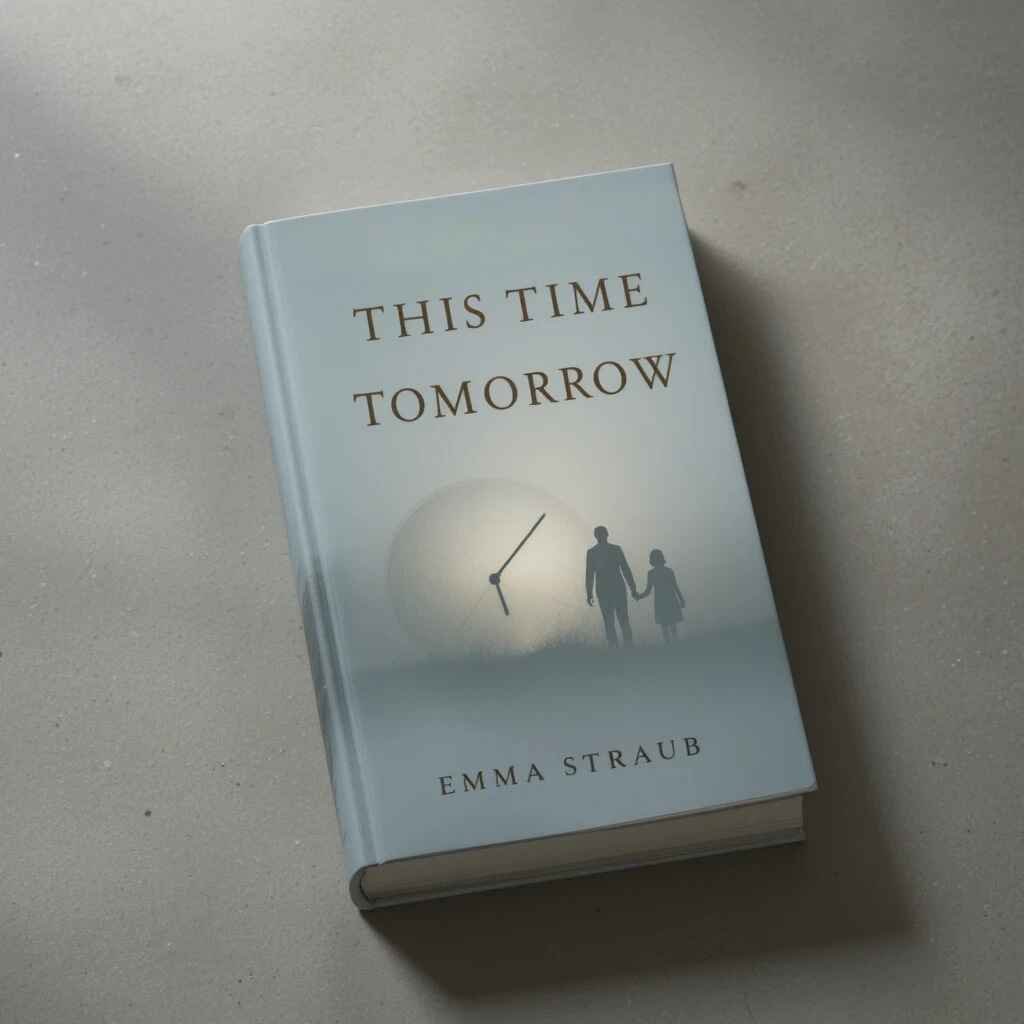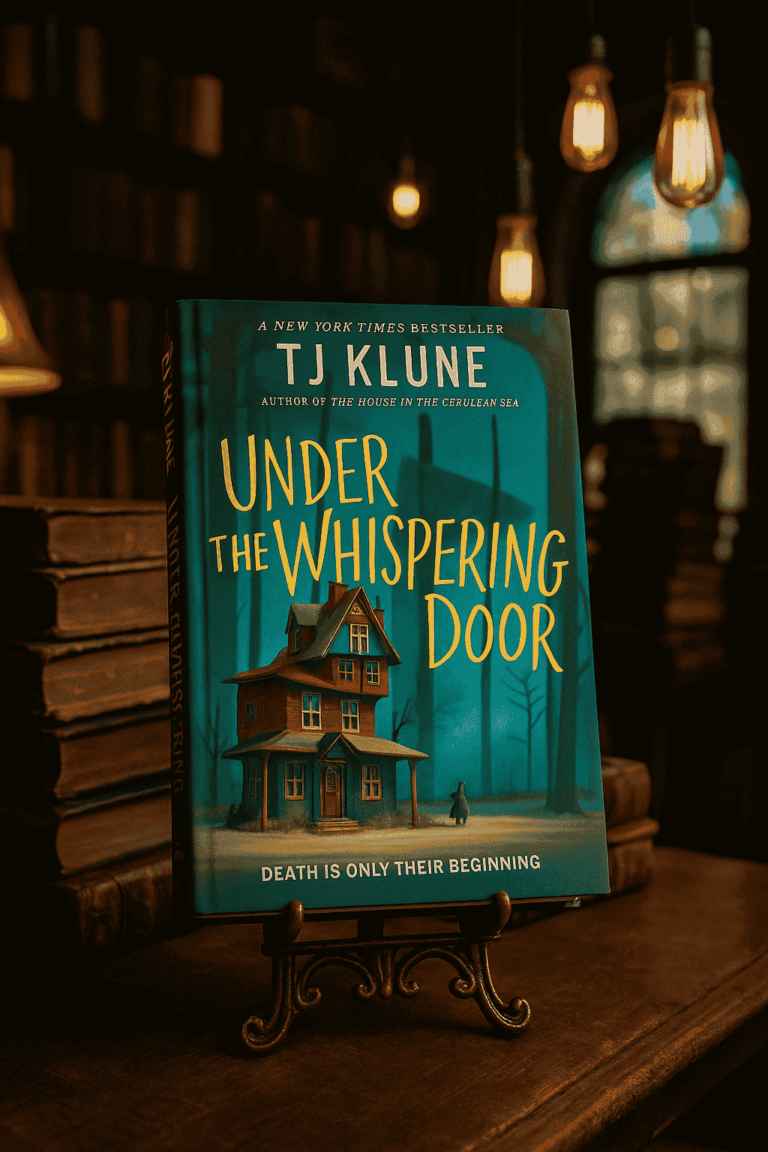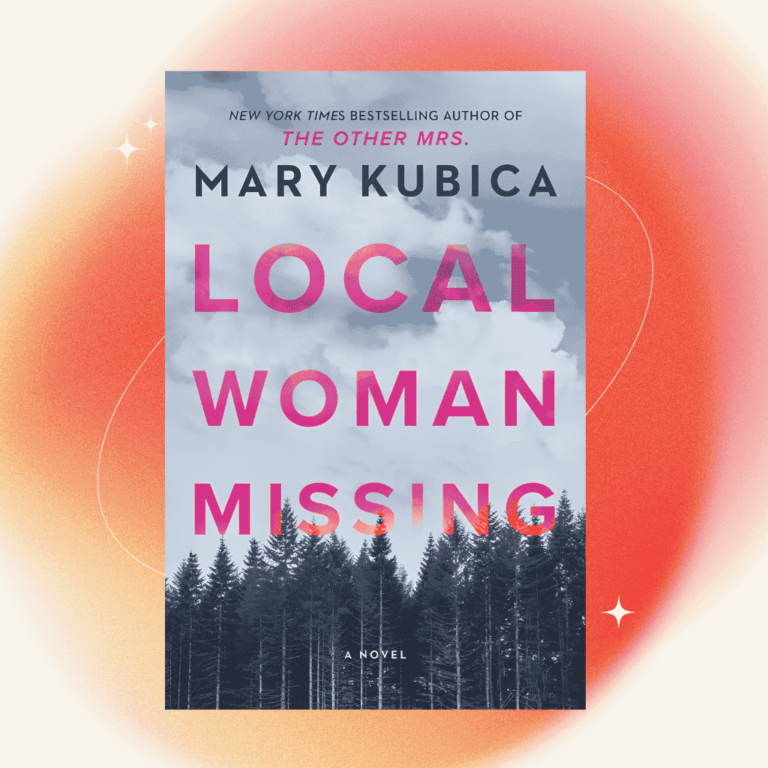This Time Tomorrow by Emma Straub: A Must-Read Review
If you’re looking for a book that blends time travel with deep personal reflection, This Time Tomorrow by Emma Straub is a must-read. The novel takes you on an emotional journey through Alice Stern’s life as she navigates the complexities of aging, regret, and the relationships that define us. Traveling back to her 16th birthday, Alice gains the chance to reconnect with her father and reconsider the choices that shaped her future. With poignant reflections on family, identity, and the weight of small decisions, this book will leave you contemplating your own relationships and what truly matters in life. Whether you’re a fan of time travel stories or deep emotional journeys, Straub’s narrative will resonate deeply and leave you with a sense of nostalgia and personal growth, as she weaves a magic legacy through time travel that transcends mere nostalgia.

A Story of Time Travel and Personal Reflection
In Emma Straub’s novel, This Time Tomorrow, we meet Alice Stern, a woman reflecting on her life, especially on her 40th birthday. As she navigates through a life that feels a bit in shambles, she finds herself accidentally traveling back to her 16th birthday. It’s a strange journey, yet one that offers Alice the chance to see her ailing father in a completely different light, healthy and at the childhood breakfast table instead of lying in a hospital bed. This unique twist on time travel makes the book feel as though we’re peeling back layers of Alice’s life, discovering what could have been and what she could change if given the chance.
The Reflection of Choices and Relationships
The novel also touches on themes of personal growth, showing how the time-traveling heroine reflects on relationships, choices, and identity. Alice comes to terms with what truly matters in her life, from her deep friendships to her affection for New York City, where she lives. While the book has its moments of reflection, it also brings us into the fast-paced, chaotic world of a woman trying to decide what truly makes her happy, even if that means revisiting the past. As Alice contemplates her life, she’s faced with moments that force her to think about the future, especially when she decides to marry and enjoy her dessert happily, or perhaps missing the part of her life that felt incomplete.
Personal Reflections and the Complexities of Time Travel
In This Time Tomorrow, the main character, Alice, embarks on a journey that explores the father-daughter relationships she shares with her father, Leonard. What I found truly striking about the narrative was how Alice’s goal shifted during her time-traveling expeditions. Instead of reconnecting with a high school crush or focusing on her own happiness, she finds herself wanting to save her father and bond with him, knowing that time is slipping away. The ’90s setting adds a layer of nostalgia, reminding us of a simpler time, yet Alice is forced to face the emotional complexities of her past. While the novel touches on romantic relationships, Straub’s brilliance lies in focusing on the heart-wrenching family dynamics between Alice and her father. It’s in their relationship that we feel the raw, unspoken truths about love, regret, and the enduring power of family.
The Emotional Depth of Alice’s Time Travel
The book touches on deep, relatable emotions—anticipatory grief, the heartache of knowing that someone you love is nearing the end of their life. Alice’s ability to travel back in time doesn’t just allow her to experience the past but to reevaluate what really matters—family, friendship, and the choices that define us. There’s a sense of profound emotional reflection in these moments, especially as Alice grapples with her father’s health and her own sense of agency. She is given the chance to make choices she couldn’t before and to reconnect with the most important people in her life. The portrayal of these relationships is bittersweet, reminding us that some moments can never be relived, no matter how hard we try. Straub’s writing brings this all together in a beautifully layered narrative.
Reflecting on Life and Time
In Emma Straub’s novel ‘This Time Tomorrow’, Alice finds herself standing on the brink of 40, but her life feels stuck in the past. After a strange twist, she wakes up in her 16th birthday bedroom, surrounded by memories she thought were long forgotten. As she navigates between the present and the past, small choices that she made long ago come to light, reminding her that sometimes the things we regret can’t be changed. With her father, a key figure in her life, at the heart of the story, Alice grapples with the realization that some relationships remain untouched by time. The novel beautifully portrays the tension between adulthood and the memories of youth, and how we are forever tethered to the people and places that shape us. Themes of grief and regret weave through the narrative, especially when Alice begins to re-examine the choices that have led her here.
A World of Pop Culture and Time Travel
As Alice revisits the past, Straub cleverly incorporates pop culture influences, including the theme of time travel, which has long been a staple in science fiction. Just like in Back to the Future and Peggy Sue Got Married, Alice is forced to confront the notion that time isn’t always linear, and memories and choices can shape our future in ways we never imagined. As she walks through her old memories, we see familiar character types emerge—the moody ex who can’t seem to move on, the dopey boyfriend who feels the pressure of proposing, and the ever-present, wise and comforting figure of her father. These are not just narrative tropes, but elements that keep the story grounded in real emotions while still feeling like a quirky adventure. Through Alice’s journey, Straub explores the idea that grief, no matter how painful, exists on its own timeline. Straub’s use of small, sensory moments—the jangle of toothbrushes, the quiet shuffle of slippers—echoes Alice’s deepening realization that it’s the ordinary moments, often overlooked, that carry the most weight in our lives. These simple memories bring her back to the essence of what really matters: the people and places we take for granted.
Alice’s Emotional Journey and Her Impactful Time Travel
In This Time Tomorrow, Alice is given a rare chance to change her past, revisiting her 16th birthday with the intention of fixing a few things in her future. The novel takes us through Alice’s transformative travels, which force her to face regret, and to confront aspects of her life — like motherhood, marriage, and career — that she feels she missed out on. Through her revisions of her timeline, Alice gets a sense of agency she lacked before, realizing that the choices she thought were forever closed could, in fact, be open to her. Straub’s narrative is a masterful blend of light-hearted moments and emotional depth, offering a window into Alice’s growth, grief, and the seismic shift in her self-awareness. This theme of time travel isn’t just about fixing the past, it’s about understanding and appreciating the life Alice has now, even if she did want to change a few things — like a moody fuccboi from the past or the choices that led her to the present.
A Look Back at the Past with Emotional Reflections
The vibrant, nostalgic setting of 1990s New York City offers more than just a backdrop; it becomes an emotional mirror to Alice’s journey, as she revisits Central Park, the smell of fresh bagels from H&H, and the bustling streets that serve as poignant reminders of her lost youth and the choices that brought her to this point. From Central Park, where Alice and her friends waited for J.F.K. Jr. to accidentally hit them with a Frisbee, to the rich sensory detail of a fresh bagel from H&H, the atmosphere is nostalgic and vivid. Alice’s relationship with her father, a slightly checked-out single father, is a central element of her reflection. The novel powerfully captures the emotional complexity of their relationship, with Alice striving to help her father break free from the stagnant emotional state he’s trapped in, knowing how crucial their bond is as time slips away. Through time travel, Alice not only embarks on her own path of personal growth, but also gains the chance to understand her father’s silent sacrifices, seeing him not just as a parent but as a person whose influence shaped her life in unexpected ways. The novel is peppered with fun ‘90s vibes and time travel references, all while being lighthearted despite the deep psychological lifting it presents. Readers are treated to moments of humor, grief, growth, and even a few tissues-worthy scenes. And, as a fan of audiobooks, I have to say I LOVED the audiobook version — it really brought the story to life.






